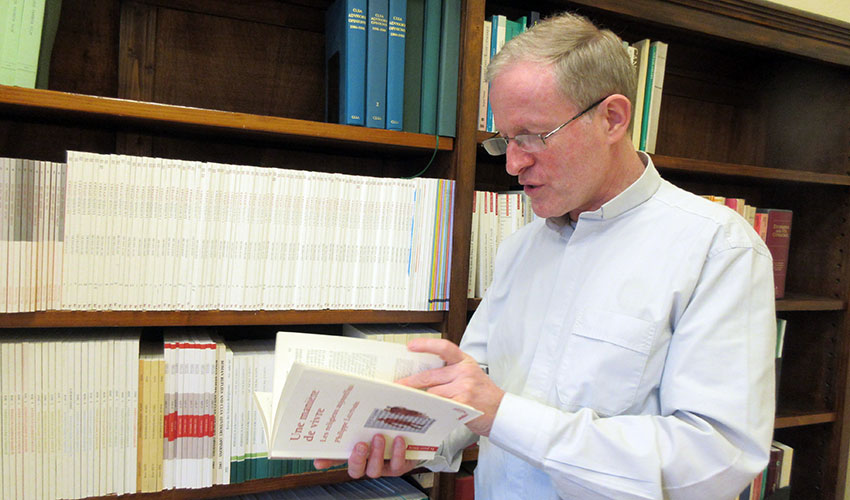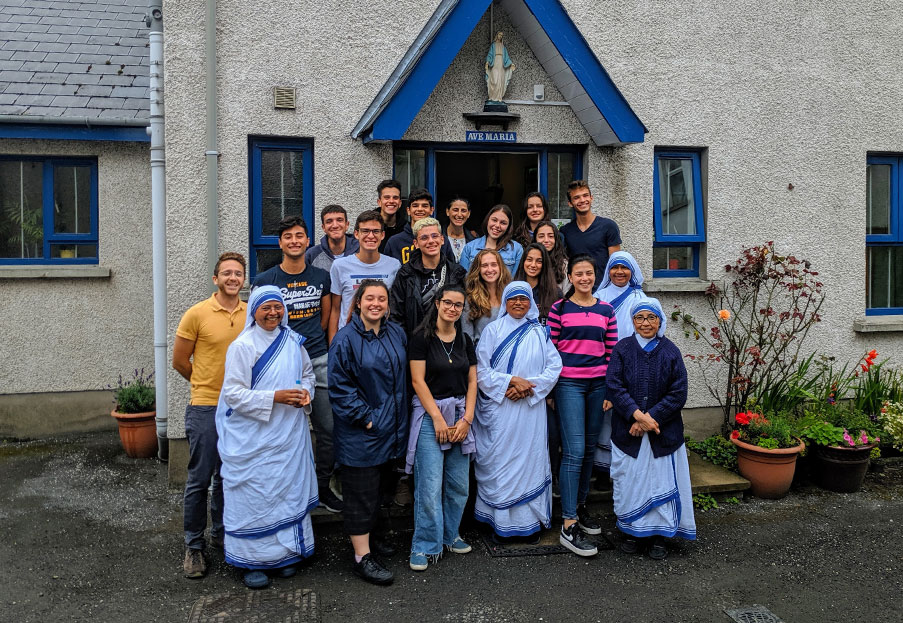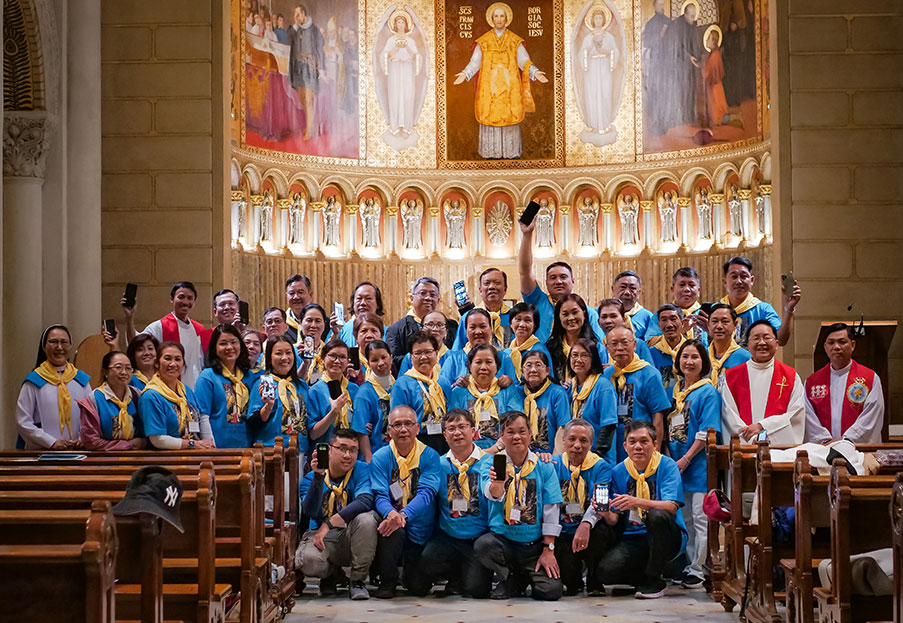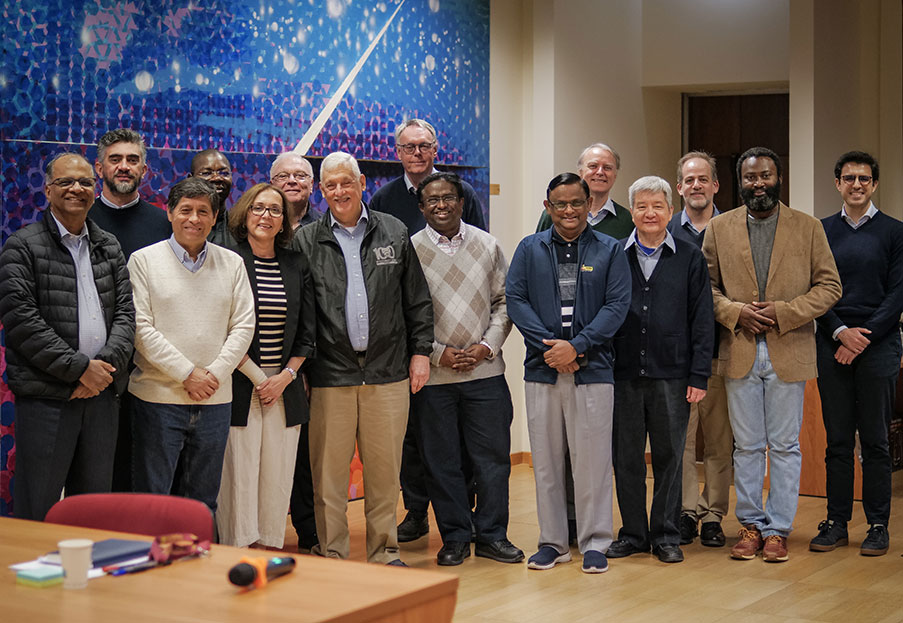First visitor to the General Curia in 13 months
We have just received our first visitor to the General Curia in 13 months! Taking advantage of the new norms issued by the Italian government allowing short stays for citizens of the European Union, Fr François Boëdec, Provincial of the French-speaking Western Europe Province (EOF) came to participate in the diaconal ordination of one of the Jesuits of his Province, François-Xavier Chambounaud. We took the opportunity to ask him some questions about how he and his Province are living “in the era of the pandemic.”
On the life of a Provincial during a pandemic...
In a situation of responsibility, one is confronted with the fact of not being able to travel. We discover community visits through Zoom, which is not ideal for personal encounters with companions for the manifestation of conscience. But it allows us to keep in touch. The challenge is to exercise, from a distance, a kind of leadership in times of confinement, to continue to support and encourage. Trying to find ways of continuing to have an apostolic dynamism during this period.
Another challenge is to be at the service of unity. Everyone is being tested and everyone is being tested differently. Some may be afraid of the risk of contagion in the community where they live, and so withdraw within the confines of their room. Others, on the other hand, seeing what is happening, are saying, “We can’t remain enclosed in our homes; we have to go and meet people who are in a very fragile condition.” This can create tensions.
It
must be said that our Province has been greatly affected by the death of about
twenty companions since the beginning of the pandemic. We must try to accompany
these moments of mourning and, as in several parts of the world, we were not
able to be present in the last moments of life of some of our companions who
died alone and were buried in a hurry. This was very distressing. That is why,
after the first wave, we had a moment of celebration in Paris to remember the
companions we had not been able to honour as we wished and to thank the Lord
for what they had been for us.

Any positive points to remember from this period?
This whole experience finally brings us face to face with what is most essential. We are helpless. When everything is “going well,” when we do a lot of things, we feel we have control over reality. The pandemic is an experience of loss of control and it brings us back to the basics. More time for prayer, a quieter life, time for companionship. In fact, community life has gained a lot; fraternity and care for each other have grown.
I was also struck by the testimony of so many lay collaborators. For example, in the school networks, with the difficulty for the educational teams to adapt to legal norms that change every week. There was a concern for the work, for the people, for doing the best in the circumstances, a real attachment to the mission and to the Society of Jesus through this. A lot of loyalty.
What about the future?
Our communities are learning about the importance of a stronger fraternal life. An interest in a religious life more rooted in the relationship with Christ. We are brought back to our vocation and what it is based on. We are called to live our reality with confidence: confidence in the Lord and confidence in life.
At the same time, we must make plans! We must not wait for everything to work out. For example, we have an important project in our Province: the great gathering of the Ignatian Family in Marseille on All Saints’ Day (1 November 2021). Will we be able to do it as we imagine? We don’t know yet, but it puts a lot of people on the move... and on Zoom! If the pandemic subsides and the vaccines allow us to return to more normalcy, it could be a great moment of reunion and celebration after the bleak times. We keep going; there is something else to experience together. It is important to move forward.
Where you find your support...
As
for many, the psalms have sustained me, the psalms of trust. I think of Psalm
91, “I will say of the Lord, “He is my refuge and my fortress, my God, in whom
I trust.”” And Psalm 23, “Though I walk through the valley of the shadow of
death, I fear no evil.” The psalms of abandonment were very precious in these
moments. And then, inevitably, we return to the “Principle and Foundation” of
our Father Ignatius. Not wishing for a long life rather than a short one, for
health rather than sickness... Are we always so indifferent and free with
regard to this? Do we put ourselves entirely in the hands of the Lord? It was
an opportunity to hear this invitation again.










